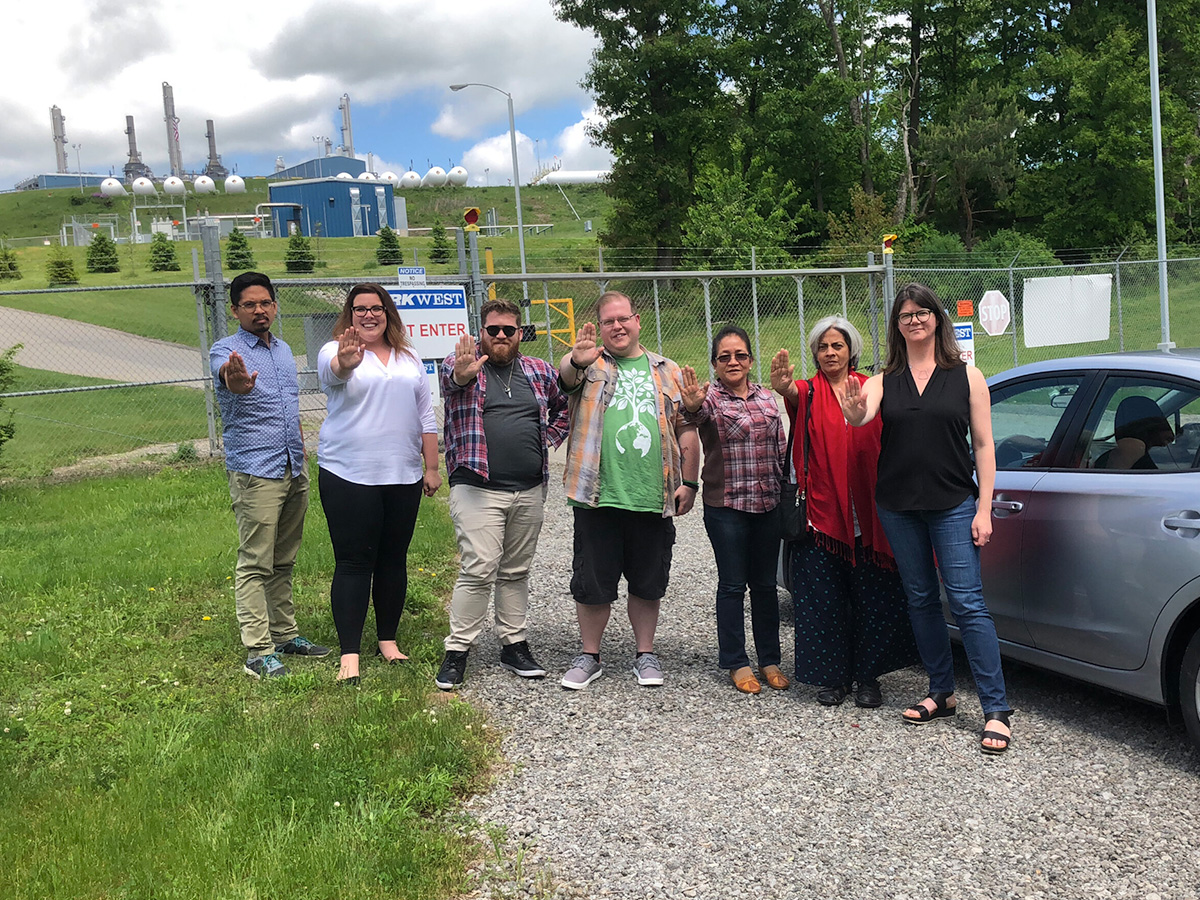by Jed Alegado, #breakfreefromplastic Asia-Pacific Communications Officer
A report of the Center for Environmental Law (CIEL) states that “99% of plastics are produced from chemicals sourced from fossil fuels.” U.S. plastics production is located in regions near fossil fuel extraction especially in the Gulf Coast, and Appalachia where communities are fighting proposed expansion of the extraction and infrastructure necessary to ramp up plastics production for export."
The report further states that the “availability of cheap shale gas in the United States is fueling a massive wave of new investments in plastics infrastructure in the US and abroad, with $164 billion planned for 264 new facilities or expansion projects in the US alone, and spurring further investment in Europe and beyond."
Such was rationale behind the #StoppingPlasticWhereItStarts Tour organised by one of the #breakfreefromplastic member groups in the United States, Earthworks. According to Jennifer Krill, Earthworks' Executive Director, the tour seeks to serve as a platform to bring U.S. grassroots community leaders threatened by oil and gas are joining their voices with communities around the world trying to break free from plastic."
“Plastic pollution begins with the climate and community health impacts from fracking and petrochemical manufacturing. The U.S. is the largest producer in the world of oil and gas, thanks to fracking, and now, the industry wants us to be the world’s supplier of plastic,” said Krill.
I had a privilege of joining this two-week tour with seasoned activists Myrna Dominguez of the Asia-Pacific Network on Food Sovereignty from the Philippines and Lakshmi Narayan from KKPKP of Pune, India. Myrna who used to be connected with the underground Leftist movement in the Philippines is a champion of smallholder food producers rights in the region while Lakhsmi is a trade union activist and is carrying the issues of waste pickers.
During the tour, we visited proposed fracking sites in Texas, Louisiana, and Pennsylvania. In these cities, we met groups fighting fracking and oil and gas facilities owned by large petrochemical corporations. Despite the differences in the level of struggles among these groups, one thing is clear: communities of color and low-income communities are the ones suffering from the health and environmental impacts of these linked industries. They are the ones largely experiencing the bad impacts of ethane and methane pollution.
This was evident in Port Arthur, Karnes and Corpus Christi in Texas where Hispanic migrants living near the facilities are fighting the construction of these facilities. In the state of Louisiana particularly in St. James and St. John, African-American groups who have historical roots in slavery are suffering from health impacts of methane plants and oil pipelines which have health ramifications for the residents living in the area known as “Cancer Alley”. In Pittsburgh, Pennsylvania, residents are greatly impacted by these proposed sites in Beaver and Allegheny counties.
These connected industries (plastic and fuel), have unsustainable, violent, and oppressive practices that harm not just consumers but the very people they employ because of labor practices, human rights abuses, concealment of scientific information from the public and until now flat-out refusal to take responsibility for the havoc they cause.
In these visits, Lakhsmi, Myrna, and I have shown how the impacts of plastic in countries in the Global South like India and Philippines are connected to the large investments of these corporations to construction of oil and gas facilities in these states.
The response of the public outside the activist circle is amazing. In one of our public events, someone from the audience asked how they can help with the struggles of these fisherfolk and waste picker groups which Lakshmi and Myrna have been leading.
We have tried to explain to them that their struggles are same with our struggles and that solidarity in order to fight the intersection of extractive industries and plastic manufacturing industries which have bad impacts to our health, environment, and livelihoods.
Convergence among movements from different races and from different kinds of struggles is necessary as we fight against big corporations carrying the neoliberal principles. Uniting these groups from the upstream to the downstream of the plastic chain will bring about a broad yet solid front against capitalism and its excesses.
To fully #breakfreefromplastic, we should stop plastic where it starts.




